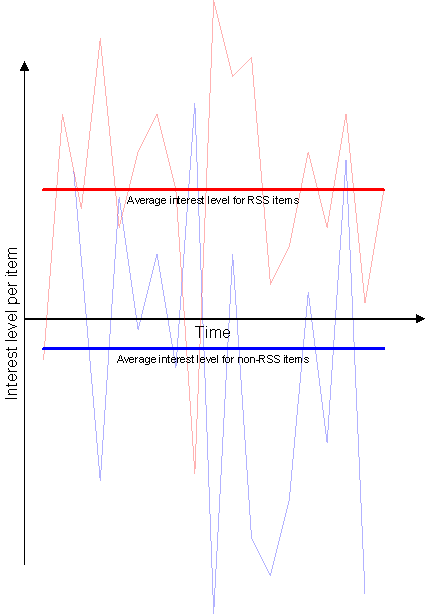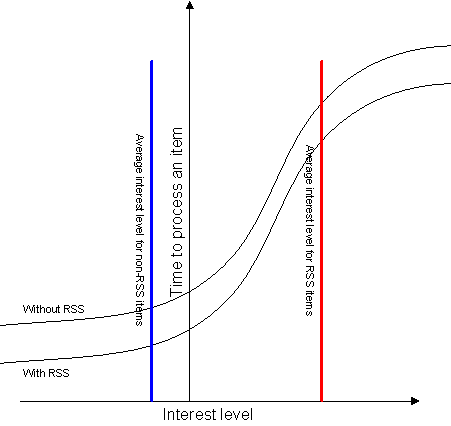

Before feed subscriptions, our world was filled with time-intensive manual monitoring and pull based operations (e.g. web browsing). Push based operations were normally based on giving up access to attention management tools like email, making them risky and outside our control.
Feed subscriptions give us a pull mechanism for having information pushed to us. This is a sublime combination of push convenience using the safety and control of a pull mechanism.
But, it’s important to realize that feed subscriptions do not solve the information overload problem (contrary to popular opinion). In fact, for many people they will make the problem worse.
Feed subscriptions dramatically increase our control, signal to noise ratio and ability to stay in the loop. They also remind us daily of the continuous information flow, forward march of ideas and compel us to stay connected.
Using RSS and feed subscriptions we can fine tune our reading to the weblogs and sources that best match our interests. Compared to the previous time-saving method of checking key hub / aggregator sites only, this results in a much higher average level of interest in the items discovered.

We are better informed, but far more overloaded with information that we feel compelled to consume for integration into our mental map.
RSS provides time advantages for consuming individual items of interest. This is through reduction of discovery overhead, removed lookup and download time, a consistent interface and reduction of the need to troll through large amounts of irrelevant information.

The problem arises because feed subscriptions are so effective at helping us to find relevant information. Interesting information and sources obviously take longer to consume that irrelevant ones (which don’t need to be read in detail). So, subscriptions increase relevance which also increases processing time. Thus, if we discover the same number of items each day as before using subscriptions the process will take us much longer (since those items are generally more interesting to us).
| Without feed subscriptions | With feed subscriptions |
|---|---|
| Monitoring is expensive | Monitoring is cheap |
| Overloaded with noise | Overloaded with signal |
| Information is hard to find | Information is hard to prioritise |
The next major challenge we face is developing tools, techniques and acceptable behaviours to help us deal with this growing amount of high-value information. I suspect that the solutions will grow increasingly less technically driven and more socially driven.
As information consumers we need to learn to balance the cost of not knowing (lost opportunities, etc) with the cost of knowing (time).
Note: Originally posted to my Synop blog on March 20, 2004.